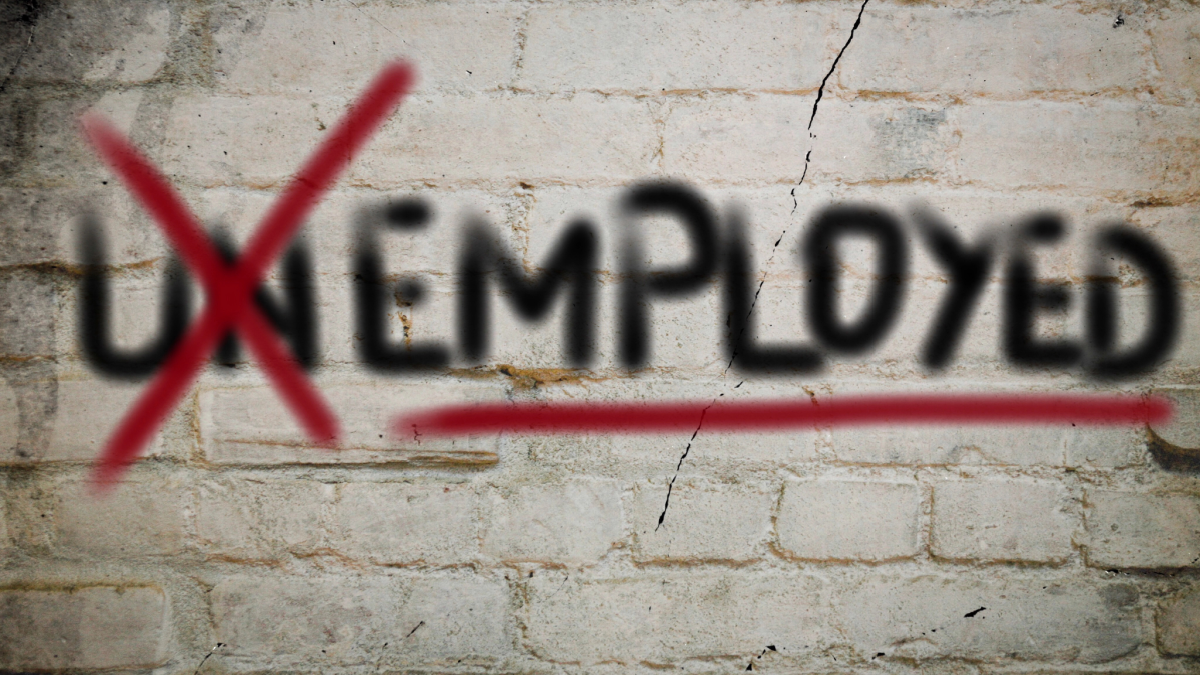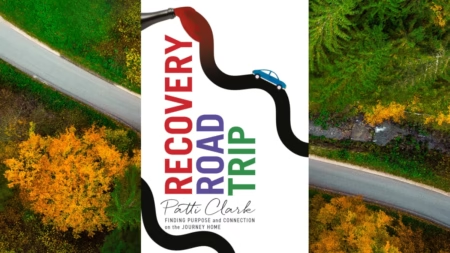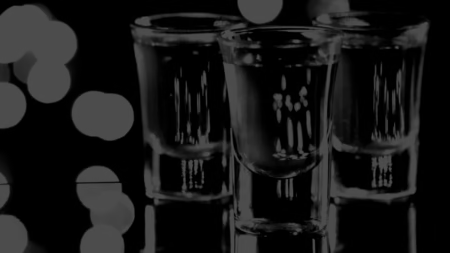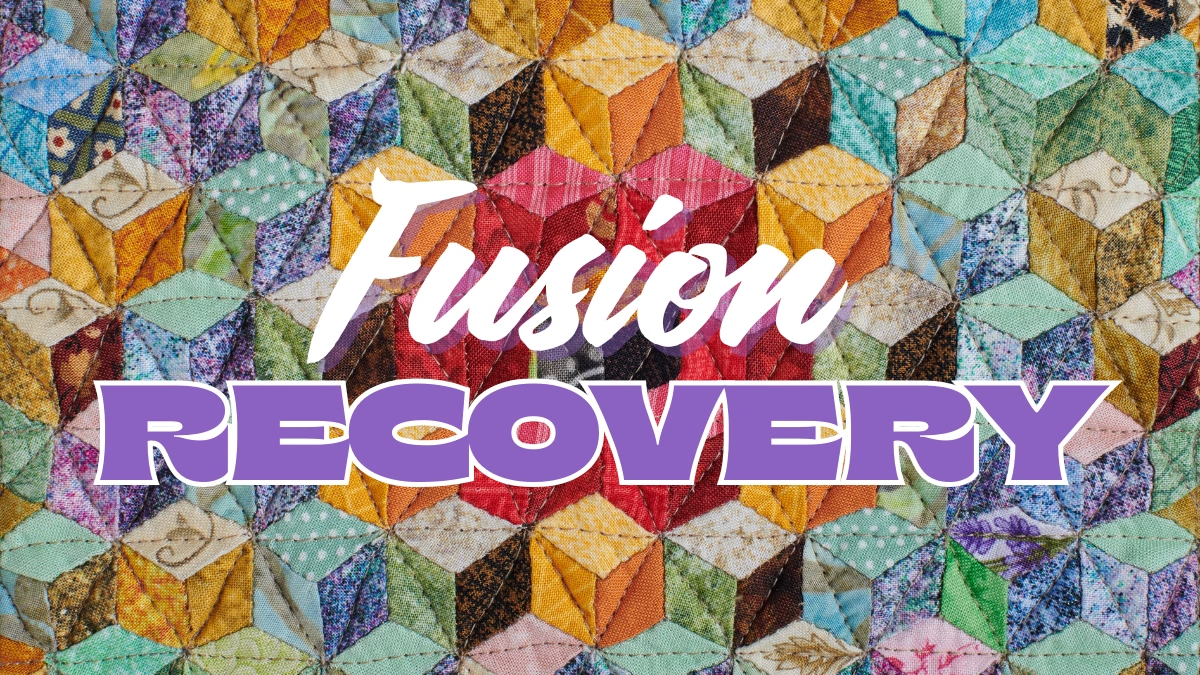
When I was in my 20s and bartending in Alaska (yeah, talk about a kid in the candy shop!), I had a T-shirt that said: So many men, so little time! I thought that was so funny — now I can’t believe I actually wore that! Then, in my 30s, raising two young children, I had a T-shirt that said: So many books, so little time! (I would wear that one if I still had it.)
But through it all, the T-shirt that would have been the most appropriate is: So many addictions, so little time!
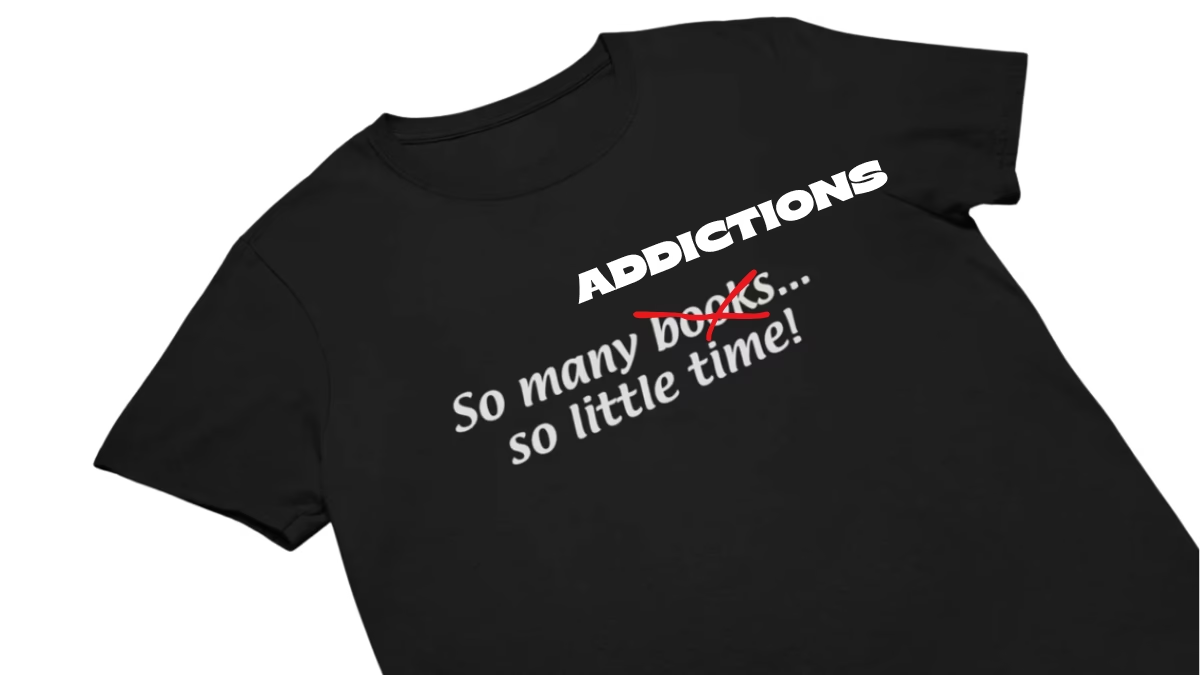
Addiction was never just one thing for me. It came in layers — drinking, smoking, snorting, trying to control everyone and everything — each one stepping forward the moment another loosened its grip, or as often as not, all of them dancing together. It was a carousel of them, spinning endlessly, daring me to jump off.
Alcohol was my first escape, which made sense. I was raised by two alcoholics. It was readily available, and it softened the sharp edges of the chaotic world that I was raised in. I felt lighter, braver, less alone when I was drunk. The only problem was that even at 13 years old, I was drinking until blackout.
The next addiction in line was speed. A couple of kids sold little white cross-tops at school. I was taking speed most days throughout high school. Then my mother died of alcoholism when I was 16. My world fell apart, and my answer to dealing with everything was to stay high, one way or another. And that was easy; I lived near San Francisco, and this was the 1970s. Drugs were everywhere!
I somehow made it through high school and college, and soon after I graduated, I moved up to Alaska (I heard there were 10 men to every woman, and I liked those odds. Another addiction, perhaps?) This was in the early 1980s, during the oil pipeline boom. There was a lot of money flowing, and with it, a lot of cocaine. It was a dangerous time for me.
Several years passed, and as I aged, I slowed down a bit, but I couldn’t stop drinking completely until I went to my first 12-step meeting. My husband and I were talking about starting a family, and I was absolutely determined to NOT be my mother. So, in 1988, I got sober two days before my 30th birthday.
When I walked into my first 12-step meeting, I felt such a weight lift off me. I went to a women’s meeting and was enveloped in love! And for the first few years, it was fantastic.
But then we moved, and I moved internally too. I needed to do deeper work. But I was told NOT to talk about anything but alcohol. (This was a small town in New Zealand, and most of the members of AA were older men who said, and I quote: “You have two ears and one mouth, shut up and listen! Don’t drink, come to meetings and you’ll be fine.”)
But I was NOT fine. And when I spoke about other addictions or pain around co-dependency, I was told to go to another room to talk about it. There was one room to deal with alcoholism, another room for the drugs, and yet another for my co-dependency. So, I started going to NA, ACOA and Al-Anon meetings, as well as the AA meetings. And in each room, I was told not to even mention the other addictions or problems besides the one that particular room was focusing on.
The shame was heavy. I thought I was failing the program, failing recovery, failing myself. So I very arrogantly decided I didn’t need 12-step rooms; I could do it myself. And I just quit going to meetings completely. Soon after that, I started drinking again. Without the connection and support, I succumbed once again to numbing out with alcohol. I had been sober for almost 13 years, and then I was out drinking again for over 13 years.
Luckily, I found my way back into the rooms in 2014. But the same dilemma existed — I still had “too many addictions for one room.” I eventually found Double-Winners Meetings (where members spoke about their addiction to alcohol and their co-dependency). and that was a great start.
But I kept thinking, addiction is addiction is addiction! We are all striving for the same thing — to live our lives without the use of whatever substance or behavior we once used to escape our lives. That might be a substance like drugs or alcohol; a behavior like controlling everyone around you to create a sense of security; eating to fill the perceived hole in your life; shopping to fill that same hole; gambling to change your life; or perhaps sex and/or porn to fill the emptiness … the list is long. Basically, we are all looking to build a life that we don’t want to escape from!
The more I thought about it, the more I wanted to fuse the concepts together. At first, I thought of doing this like a patchwork quilt; sewing all the different pieces together and trying to make a whole. But then one day, I was on a podcast called “Podcast Recovery,” talking to the hosts Eric and David, and this topic came up. And the more we talked about it, my vision started to change. I started to see the difference between a patchwork approach and a fusion approach; almost like imagining a quilt versus a blender. A quilt has all the patches different and quite distinct, whereas a blender mixes everything together to make a final liquid.
I pictured it as a dance instead of a static piece!
I think of Fusion Recovery as taking all the important elements from 12-step recovery that we need to stay clean, sober, healthy and consciously grow — without all the limited thinking involved in some 12-step rooms. I envision how it could work: allowing all addicts to work together, whatever their drug or behavior of choice, since it’s all addiction. Identifying, practicing and supporting each other in ways to stay healthy . . . not just abstaining from drinking or using, but also adding important elements.
- A Holistic Approach – considering Mind, Body, and Spirit.
Fusion Recovery considers the whole person, addressing physical health, mental well-being and spiritual growth: eating well and exercising for a healthy body; reading good books and watching good films to nourish our minds; and perhaps most importantly for ongoing sobriety, meditation, contemplation and staying connected to our higher power (whatever that is for each individual) to nourish our spirit.
- Community and Connection
Connection is such an important aspect of 12-step work! So, of course, there would be an emphasis on the importance of building strong, supportive relationships within the recovery community — no matter the addiction.
- Empowerment and Personal Growth
Encouraging individuals to take an active role in their recovery, and if counseling or therapy is needed (as it so often is), to encourage and support individuals in that endeavor.
I like the term Fusion Recovery, because by definition, “fusion is a union or a merging of diverse, distinct or separate elements into a unified whole.” I think of Fusion Recovery like alchemy. And to me, alchemy is like magic. And that is what this feels like to me … to this woman who viewed life as so many addictions, so little time … to be able to find healing really is like magic!
By NEW Sober Curator Contributor: Patti Clark, @patticlarkauthor on IG, Website patticlark.org
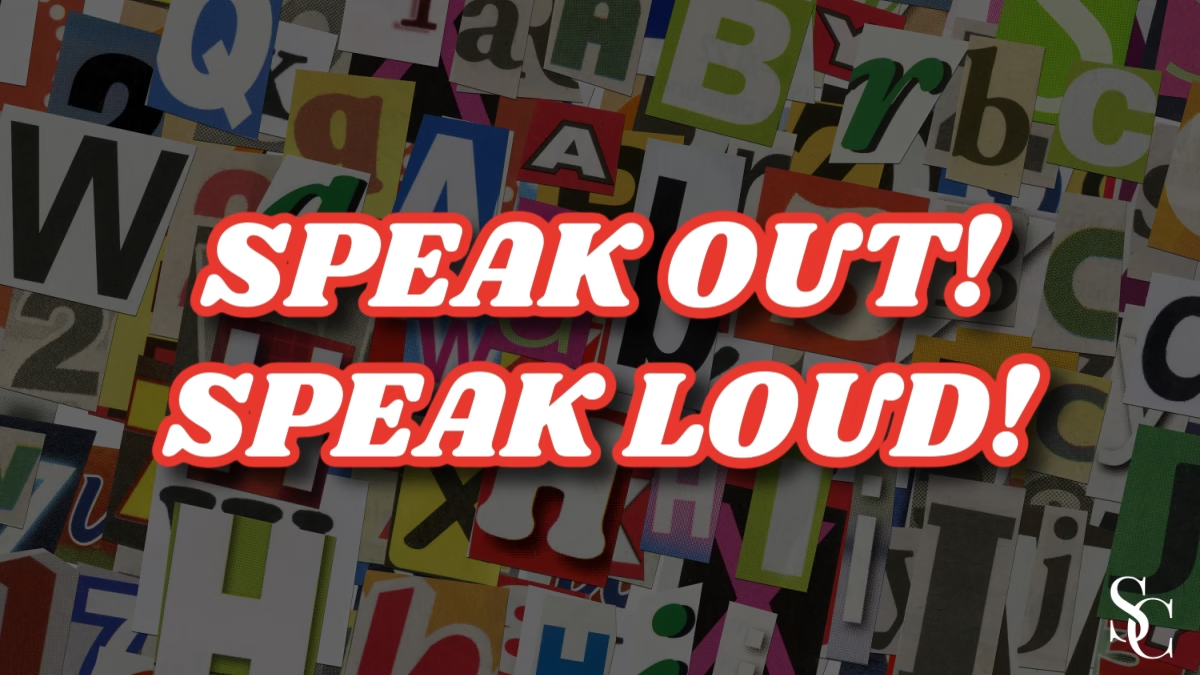
SPEAK OUT! SPEAK LOUD! at The Sober Curator is a celebration of authentic voices in recovery—echoing Madonna’s call to “Express yourself!” Here, readers and contributors take the spotlight, sharing transformative sobriety journeys, creative talents, and new avenues of self-expression discovered along the way. Through videos, poems, art, essays, opinion pieces, and music, we break the silence that often surrounds addiction, replacing it with connection, hope, and inspiration.
Your story matters—and we want to hear it. Submit your work to thesobercurator@gmail.com or DM us on social media.
Disclaimer: All opinions expressed in the Speak Out! Speak Loud! Section are solely the opinions of the contributing author of each individual published article and do not reflect the views of The Sober Curator, their respective affiliates, or the companies with which The Sober Curator is affiliated.
The Speak Out! Speak Loud! posts are based upon information the contributing author considers reliable. Still, neither The Sober Curator nor its affiliates, nor the companies with which such participants are affiliated, warrant its completeness or accuracy, and it should not be relied upon as such.
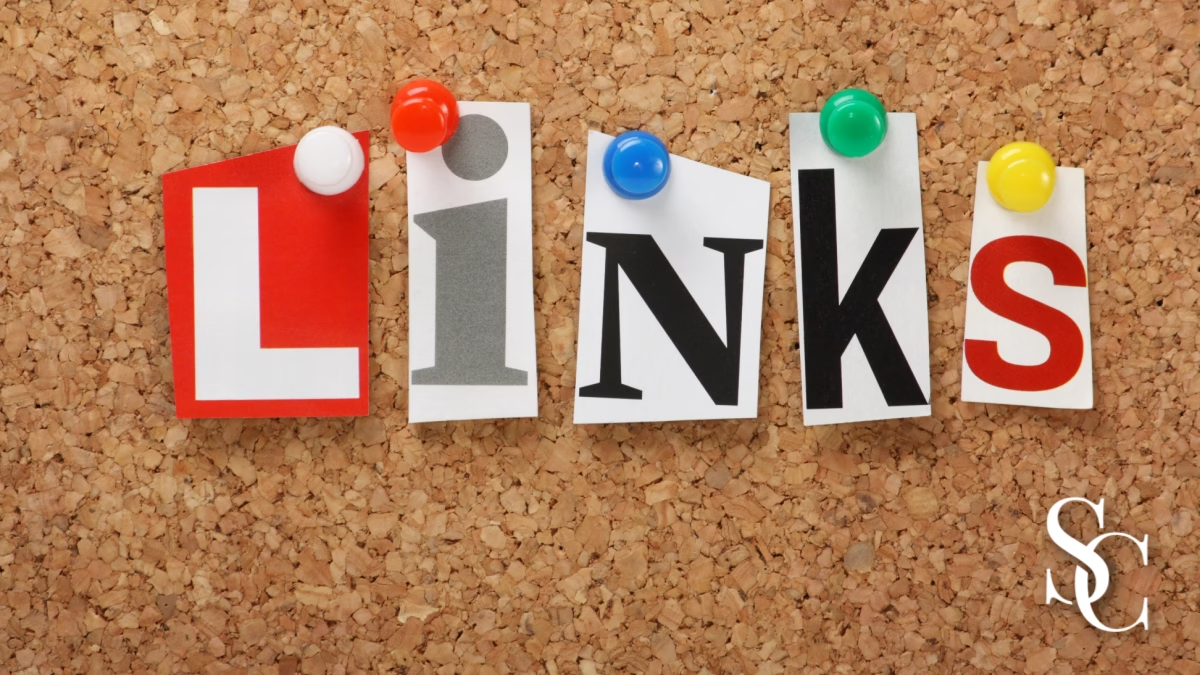
Help is Available
THE SOBER CURATOR RESOURCE GUIDE: At The Sober Curator, we provide high-quality content centered around the vibrant and fulfilling lifestyle of sobriety. While our focus is on the positive aspects of sober living, we also acknowledge that life can present challenges without the aid of alcohol or substances. Coping with these challenges alone can be daunting, which is why we strongly believe in finding recovery within a supportive community because it is the opposite of addiction.
If you or someone you know is struggling with alcohol use disorder, substance use disorder, a co-occurring illness, or a behavioral health disorder, we urge you to seek help. While the task may seem daunting, it’s important to remember that support is readily available and that there are people out there who want to help.
It’s crucial to remain persistent in your search for assistance until you find the right solution for your unique situation. In some cases, it could be a matter of life or death, so it’s essential to never give up on finding the necessary help.
If your life or someone else’s is in imminent danger, please call 911. If you are in crisis and need immediate help, please call: 988.




